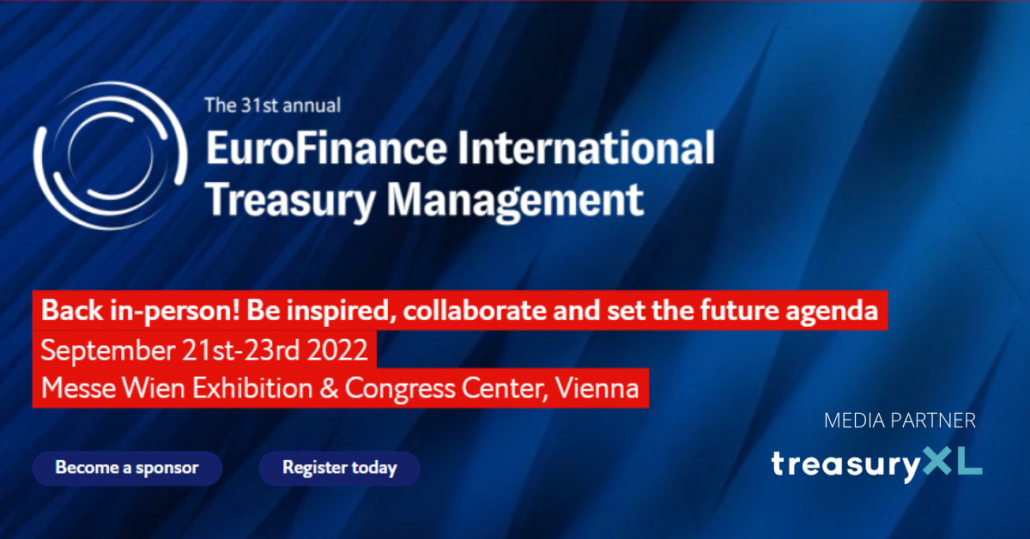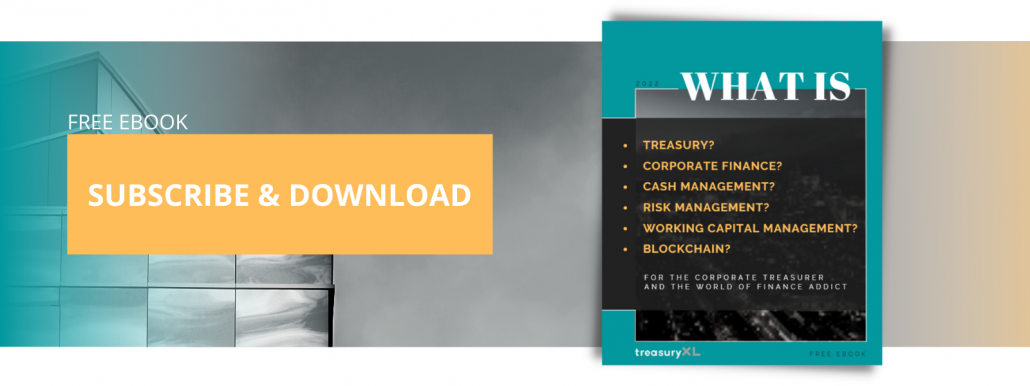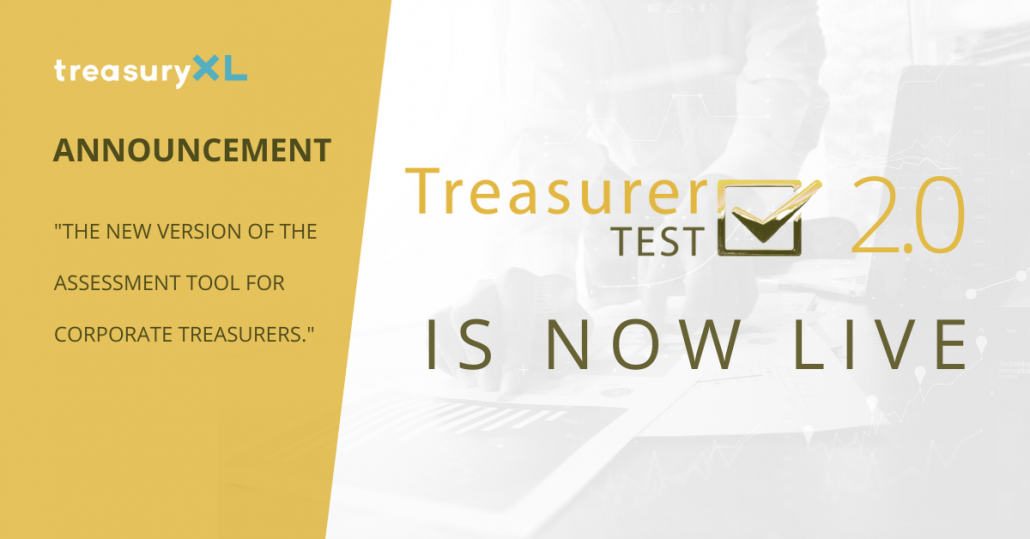08-04-2022 | Eurofinance | treasuryXL |
Featuring keynote speakers, Guy Verhofstadt and Göran Carstedt…
The 31st annual EuroFinance International Treasury Management 2022 will return this September with more than 2,000 attendees, 150 speakers, 100 sponsors and exhibitors.

For the first in-person event in three years, EuroFinance International Treasury Management keynote speakers will include Guy Verhofstadt, member of the European Parliament and Göran Carstedt, former corporate executive of Volvo and IKEA.
The full line-up brings more than 150 global corporate treasury leaders, financial institutions, technology providers and thought-leaders together to discuss the theme “Treasury in transition”, across 12 stages at Vienna’s Messe Wien Exhibition Congress Center from September 21st-23rd 2022.
Guy Verhofstadt is a Member of the European Parliament and co-chair of the Conference on the Future of Europe. He served as prime minister of Belgium from 1999 until 2008 and also made a name for himself as Brexit coordinator and as a passionate champion of more European integration. He will give the opening keynote on day 1.
Dr Göran Carstedt is the former head of IKEA North America and IKEA Retail Europe and former head of VOLVO France and Volvo Sweden. Having run some of the world’s leading companies, Dr Carstedt is also the former senior director of President Clinton’s Climate Change Initiative. He will give the opening keynote presentation on day 2 on how climate change is changing business.
Corporate treasury leaders from some of the world’s top multinationals – including TechnipFMC, Citrix Systems, Kongsberg Automotive, Autoneum, Equinor, Heinz, Medtronic, John Lewis – have also been confirmed.
“We look forward to seeing people connecting and collaborating face-to-face once again in Vienna. It’s great to see live events bouncing back across the world and from the response we have had so far, it’s clear that our community of speakers, banks and technology providers are eager to meet in-person after 2 years of virtual meetings.” says Asif Chaudhury, Managing Director of EuroFinance.
Irreversibly changed after the events of the past few years, this year’s theme will explore the “new” treasury; a highly digital and automated function tasked with meeting strategic goals and changing remits against a backdrop of multiple issues from climate change to high inflation. Treasurers will share their experience in practical case studies and technical discovery labs and celebrate the innovations that will drive change.
EuroFinance’s growing list of sponsors and exhibitors for the event includes J.P. Morgan Chase, Standard Chartered, Citi, Bank of America, BNP Paribas,, Fitch Group, HSBC, Santander Corporate & Investment Banking, Visa, Société Générale, ION, TIS, Remote Technology, B2C2, American Express, Bayerische Landesbank, UniCredit, PrimeRevenue, Northern Trust Asset Management, Credit Agricole, Zanders, ICD, Pictet Asset Management, Raiffeisen Bank, BlackRock, Legal and General, Tietoevry, Amundi, CMSpi, Nomentia, Aviva Investors Global Services, CashAnalytics, Treasury Systems, CoCoNet, Exalog, Traxpay, SisID, Finastra.
For more information and to register, visit: https://www.eurofinance.com/international
About EuroFinance
EuroFinance, part of The Economist Group, is a leading global provider of treasury, cash management and risk events, research and training. With over 30 years of experience, our mission is to bring together the brightest minds and most influential voices in treasury. Through in-depth research with 1,000 corporate treasury professionals every year, we have a unique insight into the trends and developments within the profession and an unrivalled global viewpoint.
Contacts
Marianne Ford
Senior Marketing Manager
EuroFinance
Economist Impact
[email protected]











